Inside Israel’s Torture Camp for Gaza Detainees
PALESTINE - ISRAEL, 15 Jan 2024
Yuval Abraham | +972 Magazine - TRANSCEND Media Service
Palestinians arrested in the northern Gaza Strip describe how Israeli soldiers systematically abused civilians and combatants alike, from severe deprivation to brutal physical violence.
5 Jan 2024 – In early December, images circulated worldwide showing dozens of Palestinian men in the city of Beit Lahiya, in the northern Gaza Strip, who were stripped to their underwear, kneeling or sitting hunched over, then blindfolded and put into the back of Israeli military trucks like cattle. The vast majority of these detainees were civilians with no affiliation to Hamas, Israeli security officials later confirmed, and the men were taken away by the army without notifying their families of the detainees’ whereabouts. Some of them never returned.
+972 Magazine and Local Call spoke with four Palestinian civilians who appeared in these photos, or were arrested near the scene and taken to Israeli military detention centers, where they were held for several days or even weeks before being released back to Gaza. Their testimonies — along with 49 video testimonies published by various Arabic media outlets of Palestinians arrested in similar circumstances in recent weeks in the northern districts of Zeitoun, Jabalia, and Shuja’iya — indicate systematic abuse and torture by Israeli soldiers against all of the detainees, civilians and combatants alike.
According to these testimonies, Israeli soldiers subjected Palestinian detainees to electric shocks, burned their skin with lighters, spat in their mouths, and deprived them of sleep, food, and access to bathrooms until they defecated on themselves. Many were tied to a fence for hours, handcuffed, and blindfolded for most of the day. Some testified to having been beaten all over their bodies and having cigarettes extinguished on their necks or backs. Several people are known to have died as a result of being held in these conditions.
The Palestinians we spoke with said that on the morning of Dec. 7, when the Beit Lahiya photos were taken, Israeli soldiers entered the neighborhood and ordered all civilians to leave their homes. “They were shouting: ‘All civilians must come down and surrender,’” Ayman Lubad, a legal researcher at the Palestinian Center for Human Rights, who was detained that day along with his younger brother, told +972 and Local Call.
According to testimonies, the soldiers ordered all the men to undress, gathered them in one place, and took the photos that were later disseminated on social media (senior Israeli officials have since chided the soldiers for sharing the images). Women and children, meanwhile, were ordered to go to Kamal Adwan Hospital.
Four different witnesses separately told +972 and Local Call that while sitting handcuffed in the street, soldiers entered homes in the neighborhood and set them on fire; +972 and Local Call have obtained photos of one of the burned houses. The soldiers told the detainees they had been arrested because “they didn’t evacuate to the southern Gaza Strip.”
An unknown number of Palestinian civilians remain in the northern part of the Strip despite Israeli expulsion orders since the early stages of the war, which led to hundreds of thousands fleeing southward. Those we spoke to listed several reasons why they did not leave: fear of being bombed by the Israeli army on the journey south or while sheltering there; fear that Hamas operatives would shoot them; mobility difficulties or disabilities among family members; and the uncertainty of life in the camps for displaced persons in the south. Lubad’s wife, for example, had just given birth, and they feared the dangers of leaving their home with a newborn.
In a video filmed at the scene in Beit Lahiya, an Israeli soldier holding a megaphone stands in front of the detained residents — who are sitting in rows, naked and on their knees, with their hands behind their heads — and declares: “The Israeli army has arrived. We destroyed Gaza [City] and Jabalia on your heads. We occupied Jabalia. We are occupying all of Gaza. Is that what you want? Do you want Hamas with you?” The Palestinians shout back that they are civilians.
“Our house burned down in front of my eyes,” Maher, a student at Gaza’s Al-Azhar University, who appears in a photograph of detainees in Beit Lahiya, told +972 and Local Call (he asked to use a pseudonym for fear that the Israeli army would retaliate against his family members, who are still being held in a military detention center). Eyewitnesses said the fire spread uncontrollably, the street filled with smoke, and soldiers had to move the bound Palestinians a few dozen meters away from the flames.
“I told the soldier, ‘My house burned down, why are you doing this?’ And he said, ‘Forget about this house,’” recalled Nidal, another Palestinian who also appears in a photograph from Beit Lahiya, and asked to use a pseudonym for the same reasons.
‘He asked me where it hurt, then hit me hard’
More than 660 Palestinians from Gaza are currently known to be detained in Israeli prisons — most of them in Ketziot Prison in the Naqab/Negev desert. An additional number, which the army refuses to reveal but could be as high as several thousand, are being held in several military bases including the Sde Teyman military base near Be’er Sheva, where much of the abuse of detainees is alleged to be taking place.
According to the testimonies, the Palestinian detainees from Beit Lahiya were loaded onto trucks and taken to a beach. They were left bound there for hours, and another photograph of them was taken and circulated on social media. Lubad recounted how one of the female Israeli soldiers asked several detainees to dance and then filmed them.
The detainees, still in their underwear, were then taken to another beach inside Israel, near the Zikim army base, where, according to their testimonies, soldiers interrogated them and severely beat them. According to media reports, members of IDF Unit 504, a military intelligence corps, carried out these initial interrogations.
Maher recounted his experience to +972 and Local Call: “A soldier asked me, ‘What’s your name?’ and started punching me in the stomach and kicking me. He said, ‘You’ve been in Hamas for two years, tell me how they recruited you.’ I told him I was a student. Two soldiers opened my legs and punched me there and punched me in the face. I started coughing and realized that I wasn’t breathing. I told them, ‘I’m a civilian, I’m a civilian.’
“I remember reaching my hand down my body and feeling something heavy,” Maher continued. “I didn’t realize it was my leg. I stopped feeling my body. I told the soldier that it hurt, and he stopped and asked where; I told him in the stomach, and then he hit me hard in the stomach. They told me to get up. I couldn’t feel my legs and couldn’t walk. Every time I fell, they beat me again. My mouth and nose were bleeding, and I fainted.”
The soldiers interrogated some of the detainees this same way, photographed them, checked their ID cards, and then divided them into two groups. Most, including Maher and Lubad’s younger brother, were sent back to Gaza and reached their homes that same night. Lubad himself was part of a second group of about 100 detained in Beit Lahiya that day who were transferred to a military detention facility inside Israel.
While there, the detainees regularly heard “planes taking off and landing,” so it is likely that they were held at the Sde Teyman base beside Be’er Sheva, which includes an airfield; this, according to the Israeli army, is where detainees from Gaza are held for processing — that is, deciding whether they should be classified as civilians or “unlawful combatants.”
According to the IDF Spokesperson’s Office, the military detention facilities are intended only for questioning and initial screening of detainees, before they are transferred to the Israel Prison Service or until their release. The testimonies from Palestinians who were held inside the facility, however, paint an entirely different picture.
‘We were tortured all day’
Inside the military base, the Palestinians were held in clusters of around 100. According to the testimonies, they were handcuffed and blindfolded the whole time, and permitted to rest only between midnight and 5 a.m.
One of the detainees in each cluster, whom the soldiers chose because he knew Hebrew and was given the title “Shawish” (a slang term for a servant or subordinate), was the only one without a blindfold. The former detainees explained that the soldiers guarding them had green laser flashlights that they used to mark anyone who moved, changed position because of pain, or made a sound. The Shawish brought these detainees to soldiers standing on the other side of the barbed wire fence surrounding the facility, where they were punished.
According to testimonies, the most common punishment was being tied to a fence and having to raise their arms for several hours. Whoever lowered them was taken away by the soldiers and beaten.
“We were tortured all day,” Nidal told +972 and Local Call. “We knelt, head down. Those who didn’t succeed were tied to the fence, [for] two or three hours, until the soldier decided to let him off. I was tied up for half an hour. My whole body was covered in sweat; my hands became numb.
“You can’t move,” Lubad recalled of the rules. “If you move, the soldier points a laser at you and tells the Shawish, ‘Get him out, raise his hands.’ If you put your hands down, the Shawish takes you outside, and the soldiers beat you. I was tied to the fence twice. And I kept my hands up because there were people around me who were really getting hurt. One person came back with a broken leg. You hear the beating and screaming on the other side of the fence. You are afraid to look or peek through the blindfold. If they see you looking, it’s a punishment. They will take you out or tie you to the fence too.”
Another young man released from detention told the media after returning to Gaza that “people were tortured all the time. We heard screaming. They [soldiers] said to us, ‘Why did you stay in Gaza, why didn’t you go to the south?’ And I told them, ‘Why should we go to the south? Our homes still stand, and we are not connected to Hamas.’ They told us, ‘Go down to the south — you celebrated [the Hamas-led attack] on October 7.’”
In one case, Lubad said, a detainee who refused to kneel and lowered his hands instead of keeping them raised was taken behind the barbed wire fence with his hands cuffed. The detainees heard beatings, then heard the detainee cursing a soldier, and then a gunshot. They don’t know if the detainee was actually shot, or whether he is alive or dead; in any case, he did not return for the rest of the time that those we spoke to were held there.
In interviews with Arabic media outlets, former detainees testified that other inmates held at the facility died next to them. “People died inside. One had heart disease. They threw him out, they didn’t want to take care of him,” one person told Al Jazeera.
Several detainees who were with Lubad also told him about such a death. They said that prior to his arrival, an elderly man from Al-Shati refugee camp, who was ill, died at the facility as a result of the conditions of detention. The detainees decided to go on a hunger strike to protest his death, and returned their rationed pieces of cheese and bread to the soldiers. The detainees told Lubad that at night, soldiers came in and severely beat them while handcuffed, and then threw teargas canisters at them. The detainees stopped striking.
The Israeli army confirmed to +972 and Local Call that detainees from Gaza died at the facility. “There are known cases of deaths of detainees held in the detention facility,” the IDF Spokesperson said. “In accordance with the procedures, an examination is conducted for every death of a detainee, including an examination regarding the circumstances of death. The bodies of the detainees are being held in accordance with military orders.”
In video testimonies, Palestinians who were released back to Gaza describe cases in which soldiers put out cigarettes on detainees’ bodies and even gave them electric shocks. “I was detained for 18 days,” a young man told Al Jazeera. “[The soldier] sees you falling asleep, takes a lighter, and burns your back. They put out cigarettes on my back a few times. One of the guys [who was blindfolded] said to [the soldier], ‘I want to drink water,’ and the soldier told him to open his mouth and then spat in it.”
Another detainee said he was tortured for five or six days. “‘You want to go to the bathroom? Forbidden,’” he recounted being told. “[The soldier] beats you. And I’m not Hamas, what am I to blame for? But he keeps telling you: ‘You are Hamas, everyone who remains in Gaza [City] is Hamas. If you weren’t Hamas, you would have gone to the south. We told you to go south.’”
Shadi al-Adawiya, another detainee who was released, told TRT in a videotaped testimony: “They put cigarettes out on our necks, hands, and backs. They kick you in the hands and head. And there are electric shocks.”
“You can’t ask for anything,” another released detainee told Al Jazeera after arriving at a hospital in Rafah. “If you say, ‘I want a drink,’ they beat you all over your body. There is no difference between old and young. I am 62 years old. They hit me in the ribs, and I’ve had trouble breathing ever since.”
‘I tried to take the blindfold off, and a soldier kneed me in the forehead’
The Palestinians that Israel detains in Gaza, whether militants or civilians, are being held under the 2002 “Unlawful Combatants Law.” This Israeli law allows the state to hold enemy fighters without granting them prisoner of war status, and to detain them for extended periods of time without standard legal proceedings. Israel can prevent detainees from meeting with a lawyer and postpone judicial review for up to 75 days — or, if a judge approves it, up to six months.
After the outbreak of the current war in October, this law was amended: according to the version approved by the Knesset on Dec. 18, Israel can also hold such detainees for up to 45 days without issuing a detention order — a provision that has concerning ramifications.
“They don’t exist for 45 days,” Tal Steiner, the executive director of the Public Committee Against Torture in Israel, told +972 and Local Call. “Their families are not notified. During this time, people can die and no one will know about it. [You have to] go prove it happened at all. A lot of people can just disappear.”
The Israeli human rights NGO HaMoked received calls from people in Gaza regarding 254 Palestinians who were detained by the Israeli army and whose relatives have no idea where they are. HaMoked petitioned Israel’s High Court in late December, demanding that the military publish information about the Gaza residents it holds.
A source in the Israel Prison Service told +972 and Local Call that most of the detainees taken from Gaza are being held by the military and have not been transferred to prisons. It is likely that the Israeli army is trying to obtain intelligence information from civilians while using the Unlawful Combatants Law to imprison them.
The detainees who spoke to +972 and Local Call said that they were held in the military facility alongside people they knew to be members of Hamas or Islamic Jihad. According to the testimonies, Israeli soldiers do not differentiate between the civilians and the members of those groups and treat everyone the same way. Some of those arrested in the same group in Beit Lahiya almost a month ago have not yet been released.
Nidal described how, on top of the violence the detainees experienced, the detention conditions were extremely harsh. “The toilet is a thin opening between two pieces of wood,” he said. “They put us in there tied with our hands and blindfolded. We would come in, and pee on our clothes. And that’s where we drank water, too.”
The civilians who were released from the Israeli military base told +972 and Local Call that a few days later, they were taken from one facility to the next for interrogation. Most said they were beaten during interrogations. They were asked whether they knew Hamas or Islamic Jihad operatives, what they thought about what happened on October 7, which of their family members was a Hamas operative, who entered Israel on October 7, and why they did not evacuate south as they were “asked.”
Lubad was taken to Jerusalem for interrogation three days later. “The interrogator punched me in the face, and in the end they took me outside and blindfolded me,” he said. “I tried to take the blindfold off, because it hurt, and a soldier kneed me in the forehead, so I left it.
“Half an hour later, they brought another detainee, a university professor,” Lubad continued. “Apparently, he didn’t cooperate with them during the interrogation. They beat him really brutally next to me. They told him, ‘You’re defending Hamas, you’re not answering questions. Get down on your knees, raise your hands.’ I felt two people coming toward me. I thought it was my turn to be beaten and cramped my body to prepare. Someone whispered in my ear: ‘Say dog.’ I said I didn’t understand. He said to me, ‘Say, the day will come for every dog,’” implying death or punishment.
Lubad was then released back to the detention cell. According to him, conditions in Jerusalem were better than in the facility in the south. For the first time, he was not handcuffed or blindfolded. “I was in so much pain and so tired that I fell asleep, and that was it,” he said.
‘We were treated like chickens or sheep’
On Dec. 14, a week after he was taken from his home in Beit Lahiya, leaving behind his wife and three children, Lubad was put on a bus back to the Kerem Shalom Crossing between Israel and the Gaza Strip. He counted 14 buses, and hundreds of detainees. He and another witness told +972 and Local Call that soldiers told them to run and said that “whoever looks back, we’ll shoot him.”
From Kerem Shalom, the detainees walked to Rafah — a city that has turned into a giant refugee camp in recent weeks, housing hundreds of thousands of displaced Palestinians. The released detainees wore gray pajamas, and some showed Palestinian journalists injuries to their wrists, backs, and shoulders, ostensibly as a result of the violence they suffered in detention. They wore numbered bracelets which they had been given when they arrived at the detention center.
Euro-Med Monitor, a Geneva-based human rights organization with several field researchers in Rafah, told +972 and Local Call that they estimate at least 500 Gazans were released to the city in recent weeks after being held in Israeli detention, recounting testimonies of harsh torture and abuse.
The detainees told journalists that they didn’t know where to go in Rafah or where their families were. Many of them were barefoot. “I was blindfolded for 17 days,” one of them said. “We were treated like chickens or sheep,” said another.
One of the detainees who arrived in Rafah told +972 and Local Call that since he was released two weeks ago, he has lived in a nylon tent. “Just today I bought shoes,” he said. “In Rafah, no matter where you look, you see tents. Since my release, it’s been very hard for me mentally. A million people are crowded here in a city of 200,000 [prior to the war].”
When Lubad arrived in Rafah, he immediately called his wife. He was glad to hear that she and his children were alive. “In prison I kept thinking about them, about my wife who is in a difficult situation, alone with our newborn baby,” he explained.
But on the phone, he felt that his family wasn’t telling him something. Eventually, Lubad discovered that an hour after his younger brother had returned from his detention at Zikim Beach, he was killed by an Israeli shell that hit a neighbor’s house.
Recalling the last time he saw his brother, Lubad said: “I saw how we were sitting there in boxers, and it was terribly cold, and I whispered to him, ‘It’s okay, it’s okay, you’ll be back safely.’”
During his detention, Lubad’s wife told their children that he had traveled abroad; Lubad isn’t sure they believed it. His 3-year-old son saw him stripped of his clothes on the street that day. “My son really wanted to go to the zoo, but there is no zoo [left] in Gaza. So I told him that on my trip I saw a fox in Jerusalem — and indeed, when I was interrogated, in the mornings, some foxes passed by. I promised him that after it was all over, I would take him to see them too.”
In response to the claims made in this article that Israeli soldiers burned the homes of detained Palestinians in Beit Lahiya, the IDF Spokesperson commented that the allegations “will be examined,” adding that “documents belonging to Hamas were found in the apartments in the building, as well as a large quantity of weapons,” and that shots were fired at Israeli forces from the building.
The IDF Spokesperson said that Palestinians in Gaza were being detained “for involvement in terrorist activity,” and that “detainees who were found not to have been involved in terrorist activity and whose continued detention is not justified are returned to the Gaza Strip at the first opportunity.”
Regarding allegations of ill-treatment and torture, the IDF Spokesperson said that “any allegations of improper conduct in the detention facility are thoroughly investigated. The detainees are handcuffed according to their risk level and health condition, according to a daily assessment. Once a day, the military detention facility holds a doctor’s lineup to check the medical condition of the detainees requiring it.”
The detainees who spoke to +972 and Local Call, however, said that they were examined by a doctor only upon their arrival at the facility, and they did not receive any subsequent medical treatment despite their repeated requests.
__________________________________________
A version of this article also appeared in Hebrew on Local Call. Read it here.
Yuval Abraham is a journalist and activist based in Jerusalem.
Tags: Collective Punishment, Crimes against Humanity, Cultural violence, Direct violence, Ecocide, Ethnic Cleansing, Gaza, Genocide, Genocide Convention, Hamas, Inhuman Punishment, International Court of Justice ICJ, Israel, Israeli occupation, Massacre, Palestine, South Africa, State Terrorism, Structural violence, USA, United Nations, War crimes, Warfare, West Bank, Zionism
Join the BDS-BOYCOTT, DIVESTMENT, SANCTIONS campaign to protest the Israeli barbaric siege of Gaza, illegal occupation of the Palestine nation’s territory, the apartheid wall, its inhuman and degrading treatment of the Palestinian people, and the more than 7,000 Palestinian men, women, elderly and children arbitrarily locked up in Israeli prisons.
DON’T BUY PRODUCTS WHOSE BARCODE STARTS WITH 729, which indicates that it is produced in Israel. DO YOUR PART! MAKE A DIFFERENCE!
7 2 9: BOYCOTT FOR JUSTICE!
DISCLAIMER: The statements, views and opinions expressed in pieces republished here are solely those of the authors and do not necessarily represent those of TMS. In accordance with title 17 U.S.C. section 107, this material is distributed without profit to those who have expressed a prior interest in receiving the included information for research and educational purposes. TMS has no affiliation whatsoever with the originator of this article nor is TMS endorsed or sponsored by the originator. “GO TO ORIGINAL” links are provided as a convenience to our readers and allow for verification of authenticity. However, as originating pages are often updated by their originating host sites, the versions posted may not match the versions our readers view when clicking the “GO TO ORIGINAL” links. This site contains copyrighted material the use of which has not always been specifically authorized by the copyright owner. We are making such material available in our efforts to advance understanding of environmental, political, human rights, economic, democracy, scientific, and social justice issues, etc. We believe this constitutes a ‘fair use’ of any such copyrighted material as provided for in section 107 of the US Copyright Law. In accordance with Title 17 U.S.C. Section 107, the material on this site is distributed without profit to those who have expressed a prior interest in receiving the included information for research and educational purposes. For more information go to: http://www.law.cornell.edu/uscode/17/107.shtml. If you wish to use copyrighted material from this site for purposes of your own that go beyond ‘fair use’, you must obtain permission from the copyright owner.
One Response to “Inside Israel’s Torture Camp for Gaza Detainees”
Read more
Click here to go to the current weekly digest or pick another article:
PALESTINE - ISRAEL:
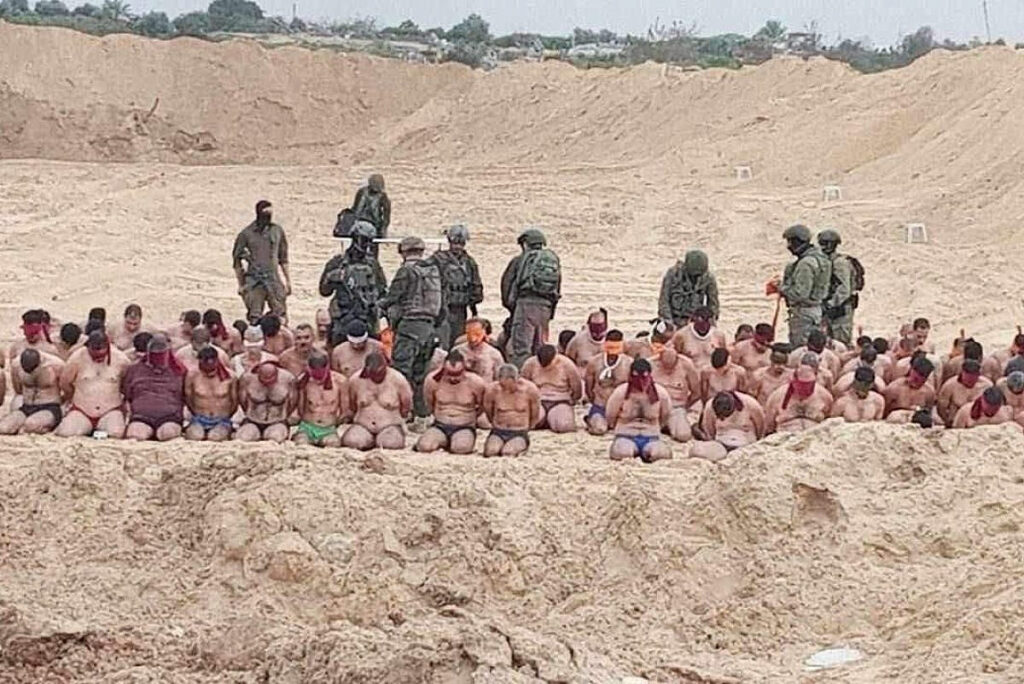
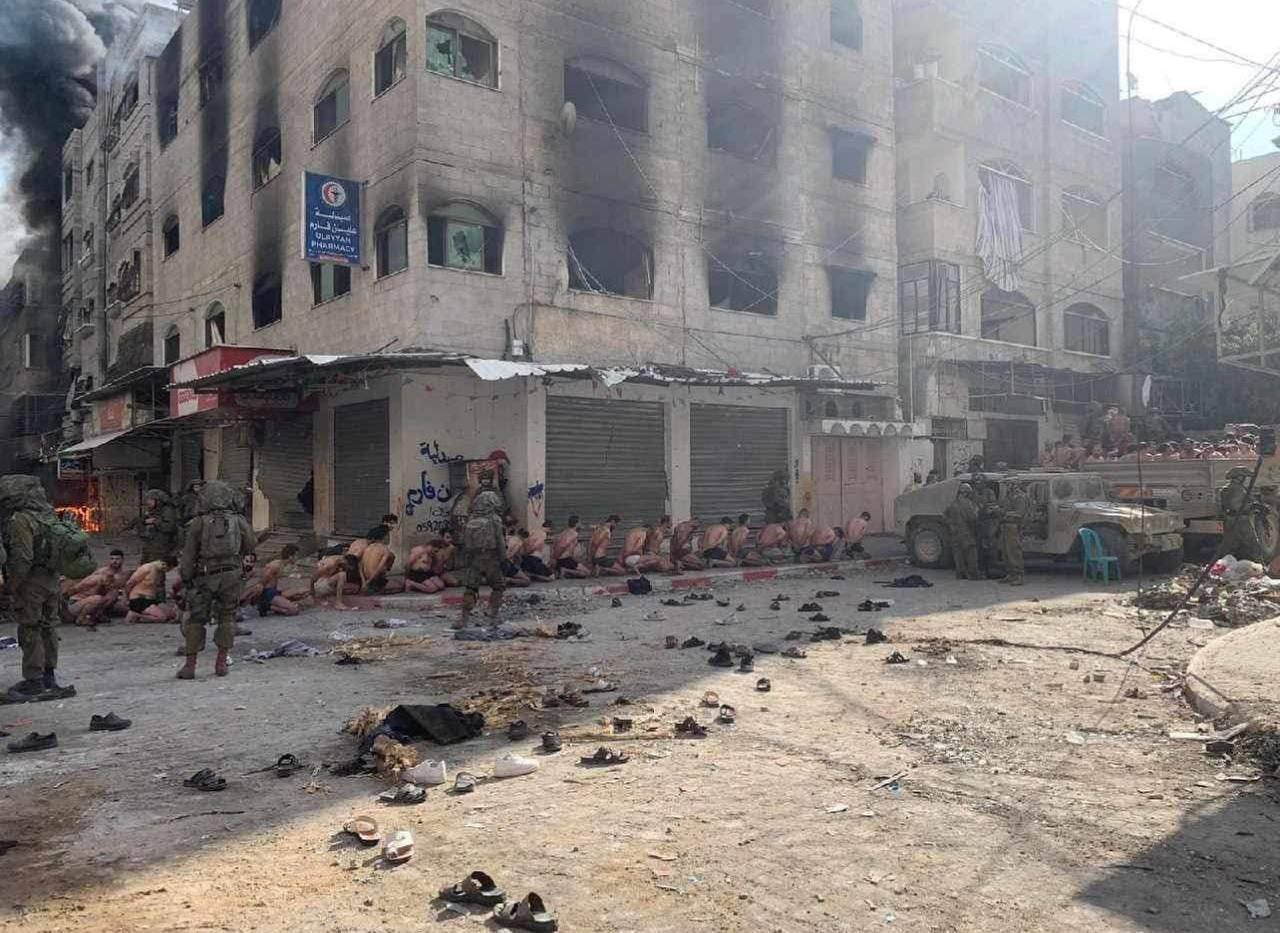
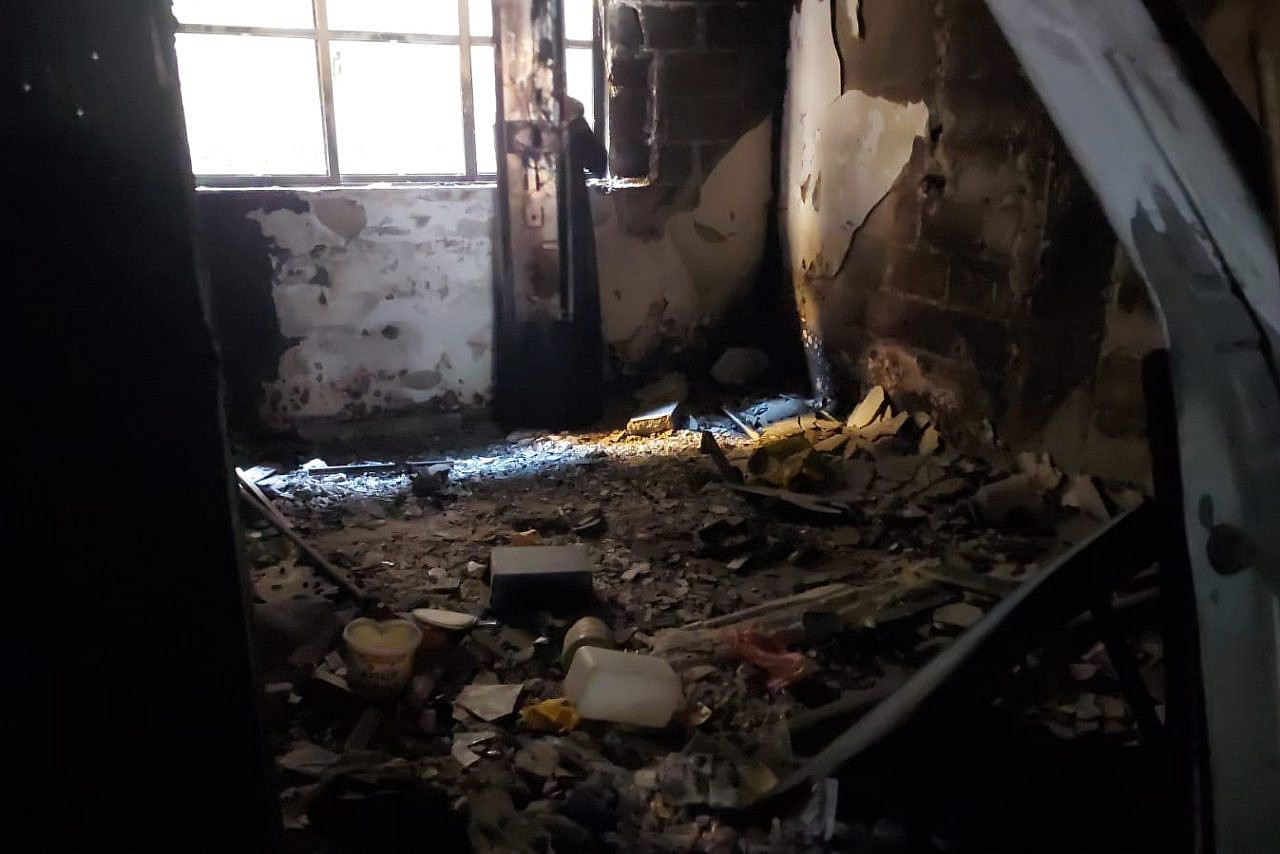
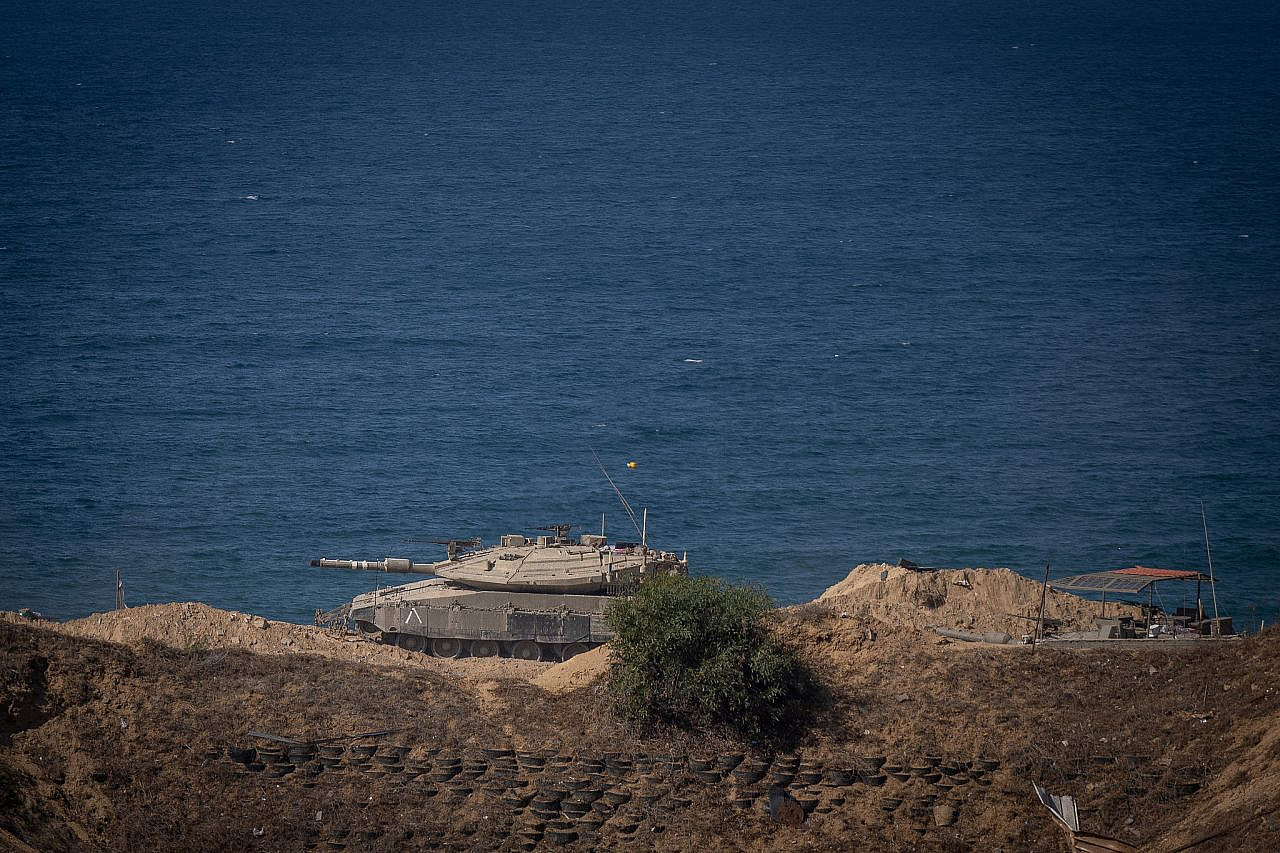
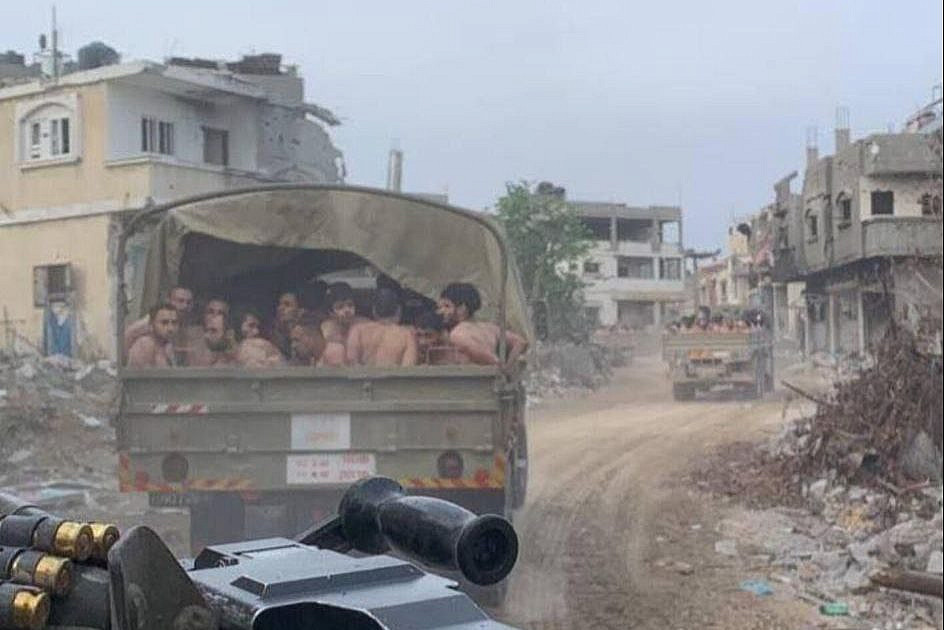
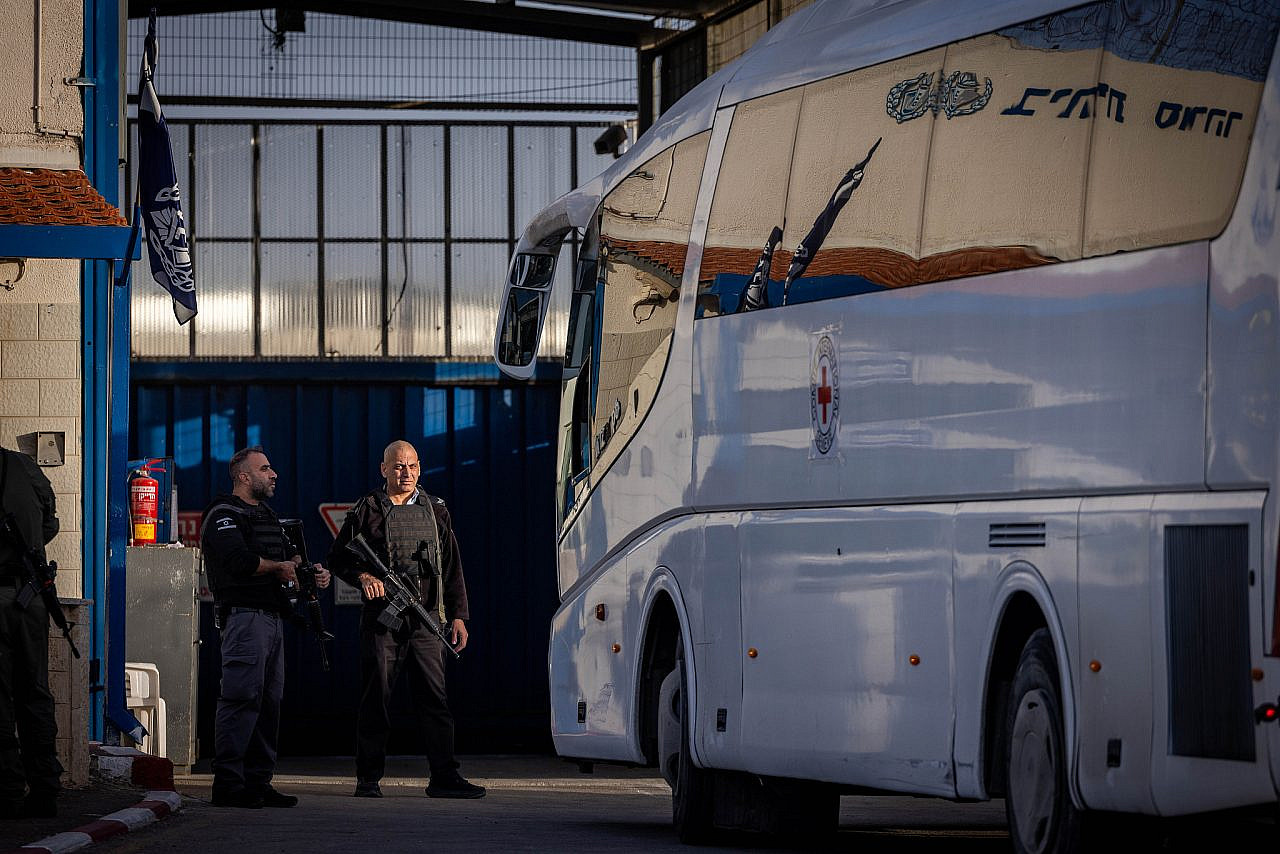
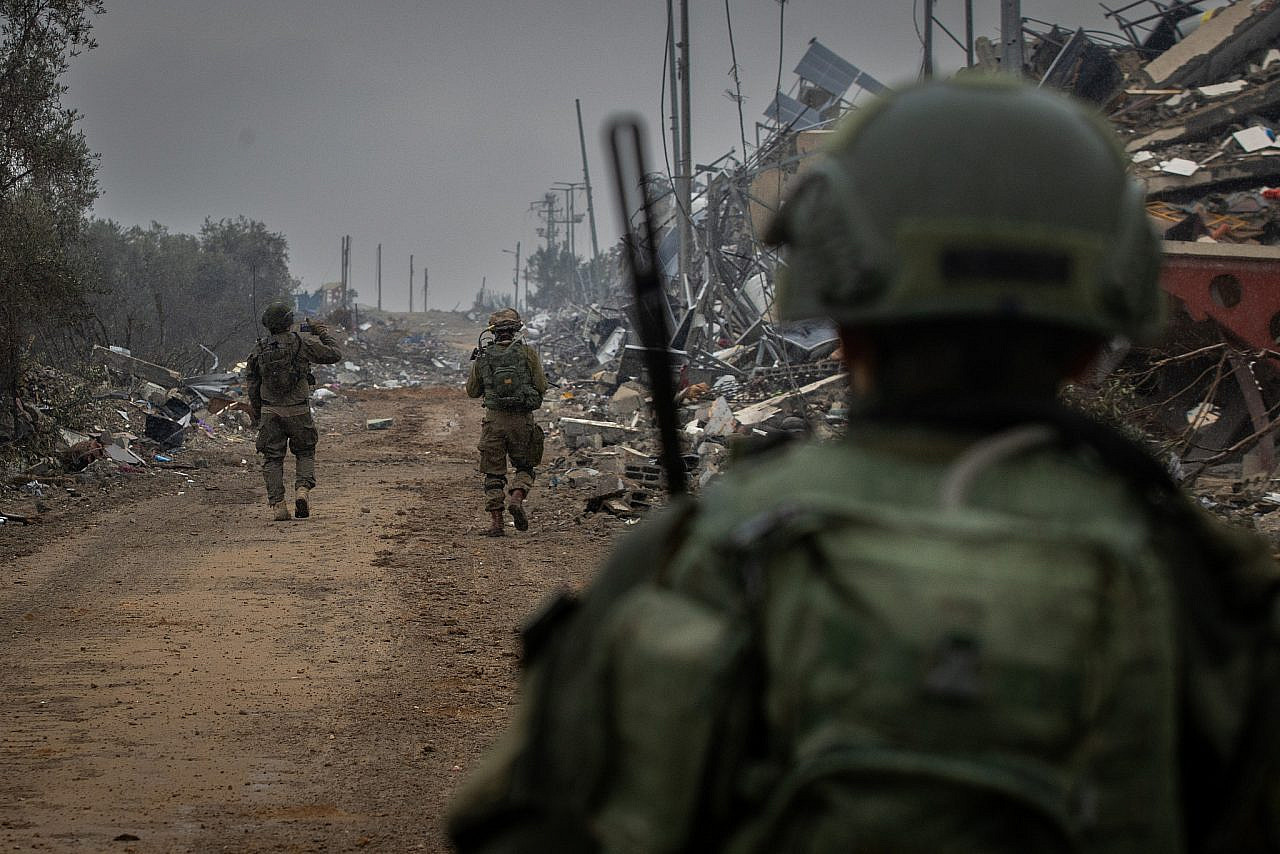
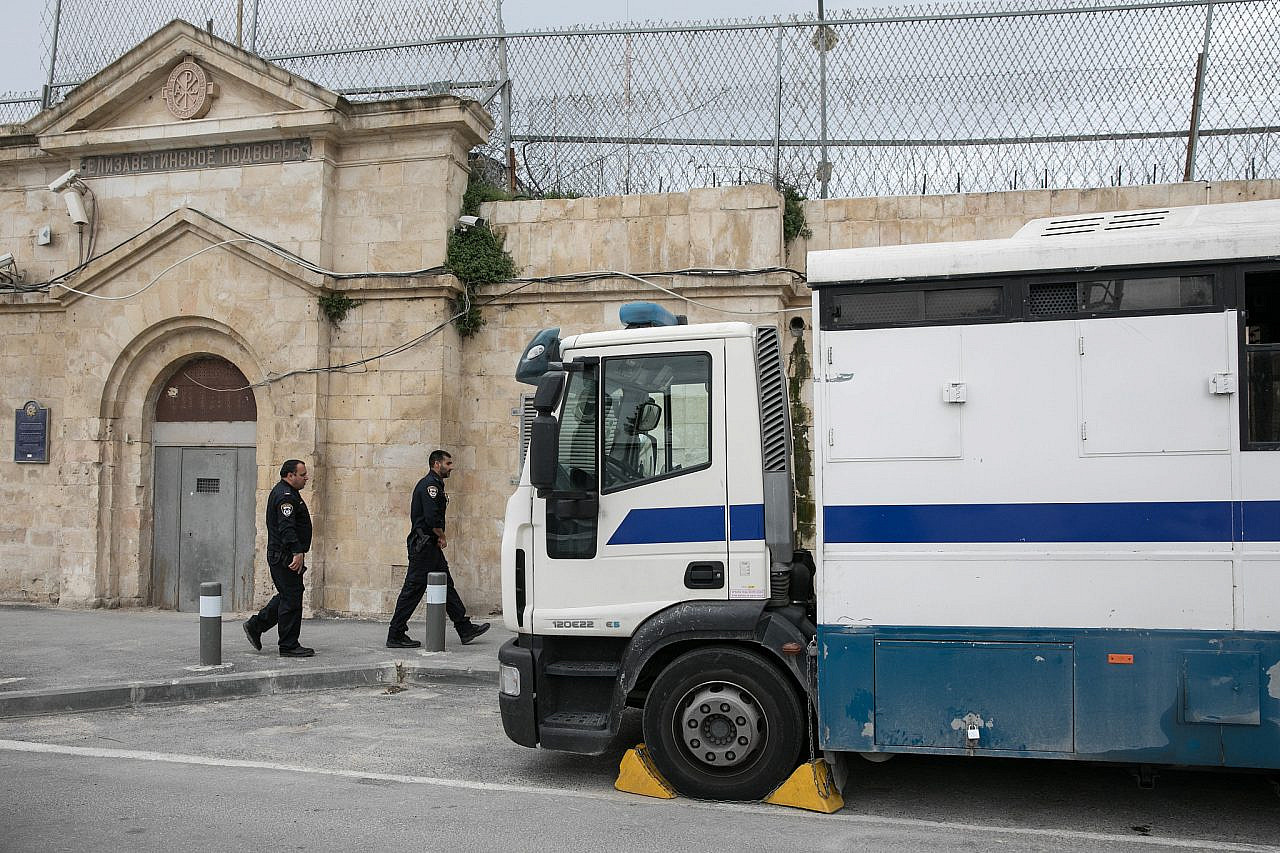
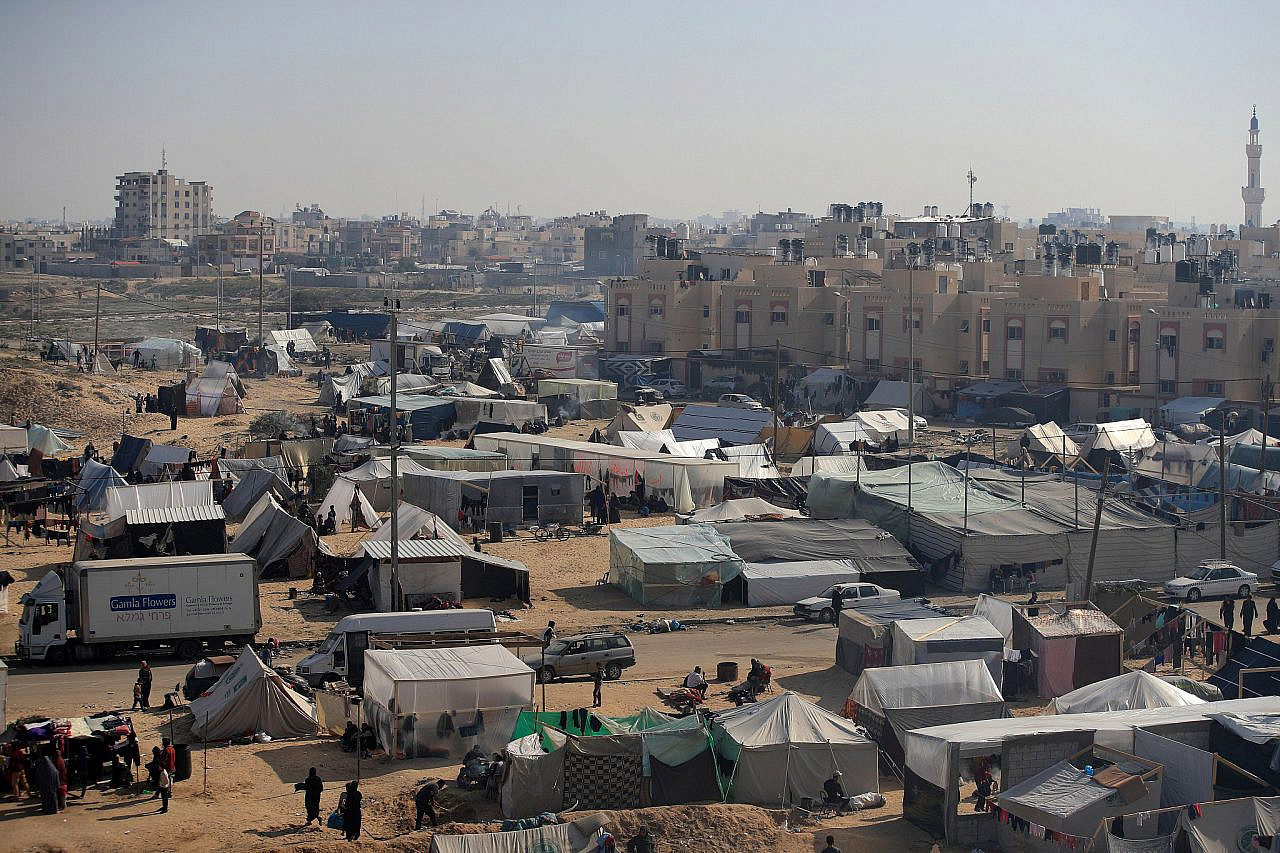
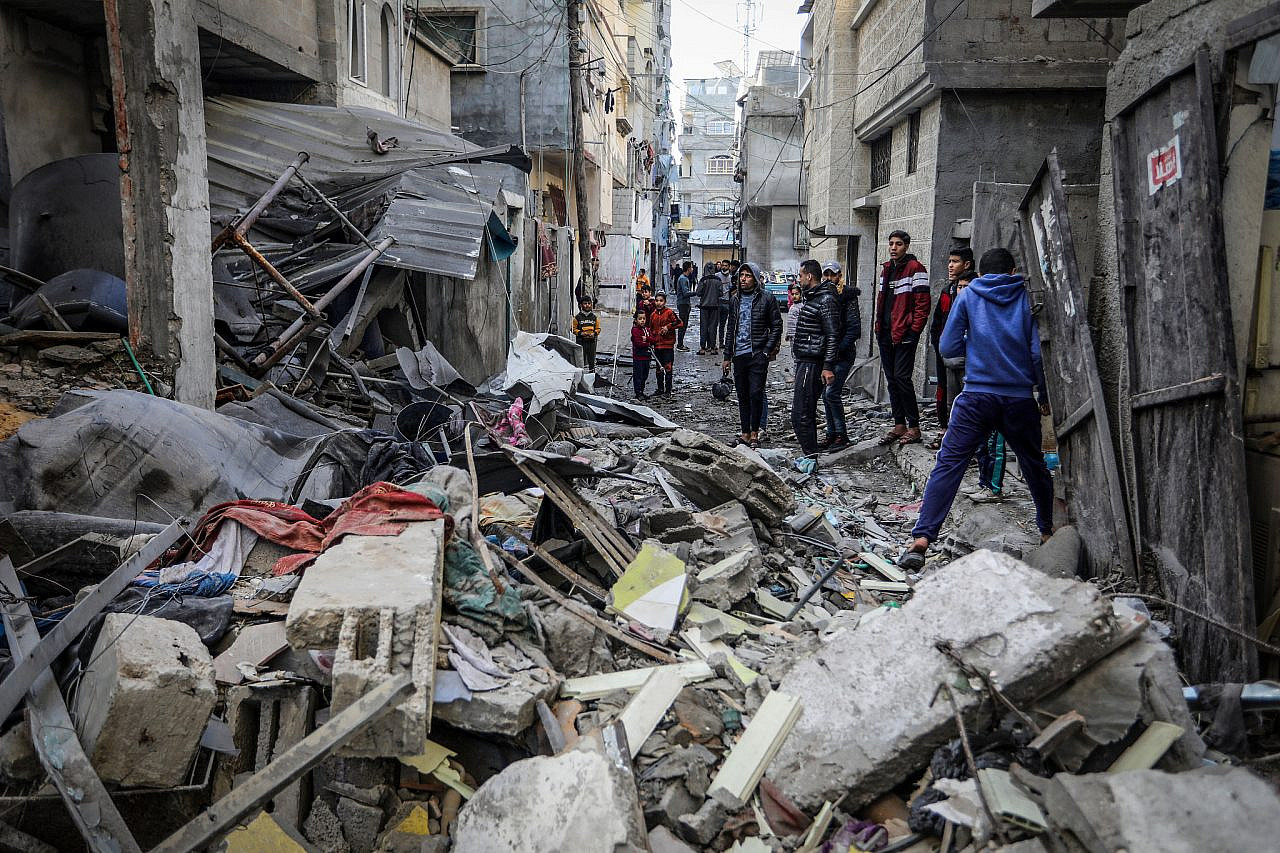

When a group of criminals takes hostages during the commission of felony, all members of the criminal gang, including the getaway driver, are equally responsible under the law for the crime and any subsequent results of their actions, even deaths caused by the police, are added to the charges for the crime.
This is a case where a political militia, Hamas, murdered & abducted innocent civilians, not unlike a gang of homicidal bank robbers taking hostages. Any deleterious actions by the IDF, even civilians caught in crossfire, rest on the shoulders of Hamas. Under the circumstances, it is difficult to sympathize with the criminal prisoners and auxiliary captives of the IDF, because the origin rests with Hamas.
The situation can be resolved immediately with release of hostages and the surrender of Hamas. All responsibility belongs to Hamas.